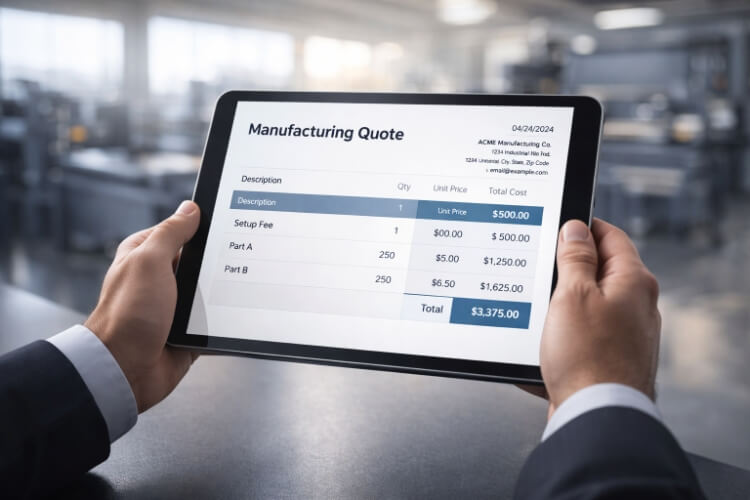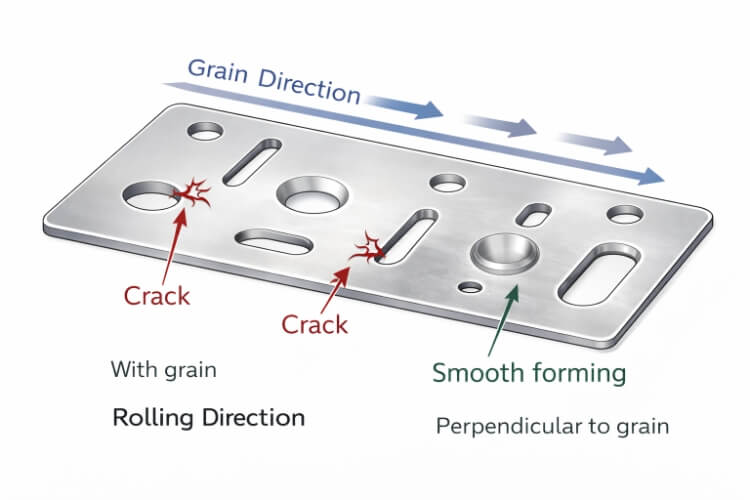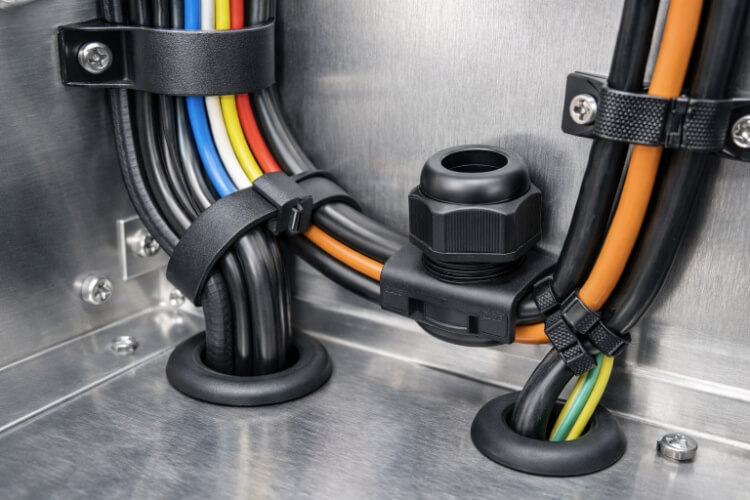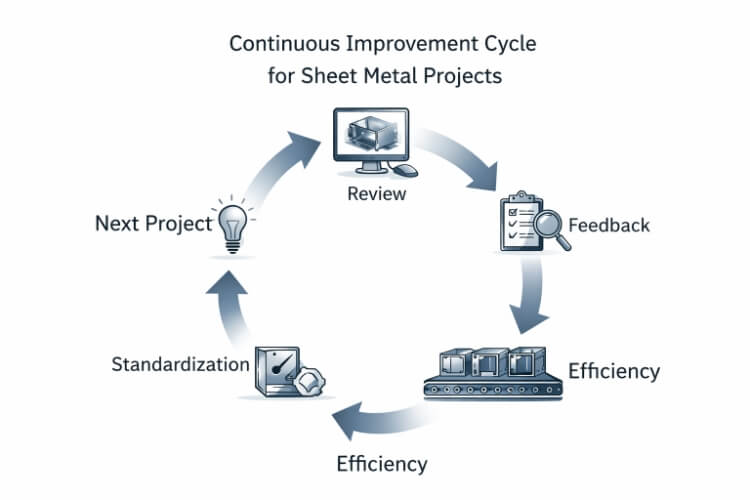Manufacturers often face tight tolerances, rough finishes, and the need for high precision. If you’re trying to meet demanding specs and want repeatable results, precision grinding could be the key. Let’s break it down in simple terms and see how it works.
Precision grinding solves real problems in production. It helps when parts don’t meet specs after machining. Now, let’s break down the steps and types so you can apply them to your work with confidence.
What Is Precision Grinding?
Precision grinding is a method that uses a spinning wheel covered in abrasive particles. This wheel cuts away tiny amounts of metal from a part’s surface. The goal is to improve accuracy, achieve tight tolerances, and create a smoother surface. It does not significantly alter the overall shape. Instead, it fine-tunes a part that is already close to the final size.
The grinding machine moves the part and the wheel in controlled steps. This helps ensure every cut is accurate. Different machines and wheel types are used depending on the material, size, and shape of the part.
This process is used in many industries. It includes aerospace, automotive, medical, and industrial tools. It works well on hard metals, such as steel, titanium, and tool alloys.
Why Precision Matters in Modern Manufacturing?
Precision matters because most products must fit, move, or seal perfectly. Even a tiny error in size can cause a product to fail or wear out faster.
Tight tolerances reduce friction, improve fit, and extend part life. In fields such as aerospace or medicine, even minor flaws can lead to significant problems.
Precision grinding enables the achievement of those tight tolerances. It can correct slight errors left from CNC machining or casting. It’s also used to get the perfect finish on visible or contact surfaces.
In today’s factories, consistency matters as much as accuracy. Precision grinding helps ensure each part meets the same standards.
Core Principles of Precision Grinding
To understand how precision grinding works, you need to look at what happens at the surface level. This process utilizes abrasion rather than traditional cutting.
Material Removal Mechanism
Precision grinding removes material through friction. The grinding wheel is made of tiny, sharp abrasive grains. These grains act like small cutting tools.
When the wheel spins and contacts the metal, each grain chips away a tiny bit. Unlike a cutting tool that removes large chips, grinding creates fine dust or powder. This allows for more control and a finer finish.
The process works best when removing microns of material. It does not warp the part, leaving it very close to the final shape and size.
Abrasive Grain Action and Cutting Force
The abrasive grains must be hard and sharp. Common materials include aluminum oxide, silicon carbide, and cubic boron nitride (CBN). These grains are held together by a bonding agent that breaks down slowly as the wheel wears.
As grains cut into the surface, they produce force. Excessive force can generate heat, which can damage the part. That’s why grinding machines often include coolants.
The size, shape, and spacing of the grains affect the cut. Finer grains remove less material but leave a smoother finish. Coarser grains cut faster but leave rougher surfaces.
Importance of Surface Finish and Tolerance
Precision grinding enables the achievement of excellent surface finishes. Smooth surfaces reduce friction, wear, and noise. They also help with sealing and coating applications.
Tolerance refers to the distance between the part and the target size. In many industries, parts must meet strict size rules. If they are too big or small—even by a few microns—they can fail.
Precision grinding helps control both surface finish and tolerance. It is often the last step to bring a part into spec.
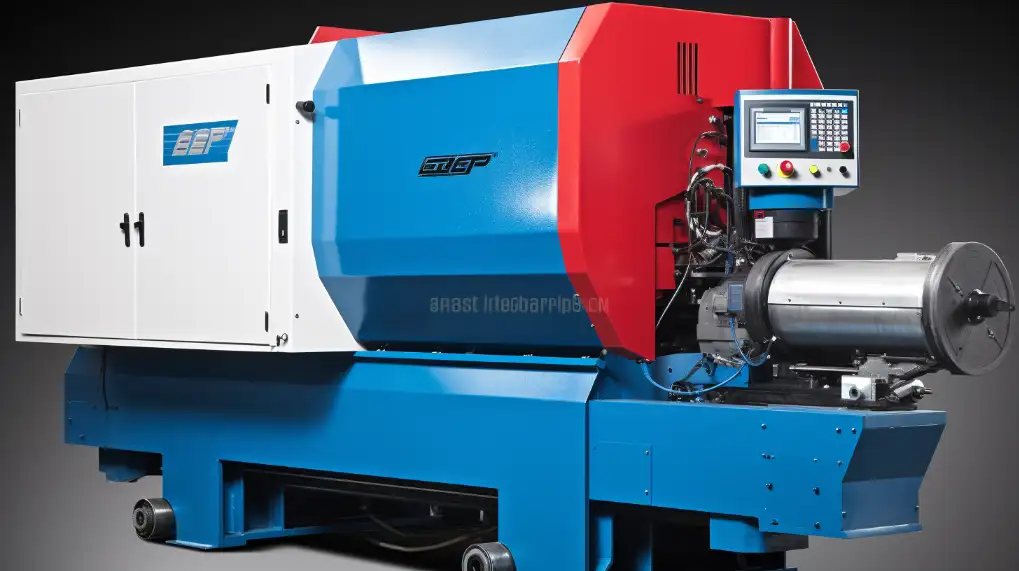
Major Types of Precision Grinding
Different grinding methods are used based on part shape, size, and required finish. Each type has its machines, tools, and applications.
Surface Grinding
Surface grinding creates a flat and smooth surface. It uses a rotating grinding wheel that moves across the surface of a workpiece. The workpiece stays fixed on a magnetic chuck or table. The wheel removes a thin layer of material with each pass.
This method is often used for flat plates, blocks, and tool components. It’s ideal for tight thickness tolerances and low surface roughness. Surface grinding machines can be manual or CNC-controlled.
Surface grinders usually move in two directions. The wheel moves down into the part (vertical feed), and the table moves side to side (horizontal feed). Coolant is often used to reduce heat and prevent damage to the material.
Cylindrical Grinding
Cylindrical grinding is used for parts with a round shape. It works by rotating the workpiece while a grinding wheel moves toward it. This shapes the outer surface to a precise diameter.
There are two types: external and internal cylindrical grinding. In external grinding, both the wheel and the part rotate. The wheel removes material from the outer surface. In internal grinding, the wheel goes inside the part and grinds the inner surface.
Cylindrical grinding is common for shafts, rods, bushings, and bearings. It gives high accuracy and a smooth finish. It’s used in automotive, aerospace, and tooling applications where roundness and diameter matter.
Centerless Grinding
Centerless grinding removes material from the outside of a part without using centers to hold it. Instead, the part rests between a grinding wheel, a regulating wheel, and a work support blade. The grinding wheel removes material, and the regulating wheel controls the speed and rotation.
This method is fast and accurate. It works well for high-volume production of small cylindrical parts. Common examples include pins, rollers, and shafts. Centerless grinding is ideal for parts that don’t require clamping or chucking.
There are two main types: through-feed and in-feed. Through-feed pushes the part straight through the machine. In-feed grinds one section while the part stays in place.
Creep-Feed Grinding
Creep-feed grinding removes material in a single, deep pass instead of multiple shallow passes. It uses a slower feed rate and a high-power grinding machine. The process eliminates a significant amount of material while maintaining tight tolerances.
This method is best for complex parts with deep grooves or forms. It is often used in the aerospace and turbine industries. Parts like engine blades or structural components benefit from creep-feed grinding.
The key is the slow, steady movement. It reduces heat and gives better control of the shape and finish.
Jig Grinding
Jig grinding focuses on finishing holes, slots, and contours with high accuracy. It uses a high-speed grinding spindle mounted on a precision machine. The machine allows fine movement in both the X and Y axes.
This method is used when tight tolerances and fine finishes are needed. It is often used in tool and die-making, especially for molds and fixtures.
Jig grinders can achieve micron-level precision. They are ideal for correcting alignment and shape errors in hardened parts. The process is slower but offers unmatched accuracy for internal features.
Surface Finish and Tolerances Achievable
Precision grinding stands out because it can deliver very smooth finishes and extremely tight tolerances. These features are key in industries where parts must fit perfectly or function under stress.
Ra and Rz Value Standards
Surface finish is measured in micrometers or microinches. The most common values are Ra (Roughness Average) and Rz (average maximum height). Ra gives the average height of surface peaks and valleys. Rz measures the distance between the highest peak and lowest valley in a sample length.
Precision grinding can achieve Ra values as low as 0.2 µm (8 µin). For ultra-smooth surfaces, such as in medical or optical parts, values below 0.1 µm (4 µin) are possible. Surface finish depends on wheel grit, material hardness, and machine control.
Choosing between Ra and Rz depends on the part’s requirements. Ra is suitable for general finish. Rz is better when peak heights matter, like for sealing surfaces.
Flatness, Roundness, and Parallelism
Precision grinding can hold tight geometric tolerances. The flatness refers to how even a surface is. Roundness measures how close a part is to a perfect circle. Parallelism means how well two surfaces stay the same distance apart.
Grinding can achieve flatness within 0.005 mm (0.0002 inch) or better. Roundness can be kept within 0.001 mm (0.00004 inch). These levels are common in the aerospace, automotive, and mold-making industries.
Achieving this level of control requires stable machines, skilled operators, and accurate setup. Proper coolant use and wheel dressing also help maintain tight tolerances.
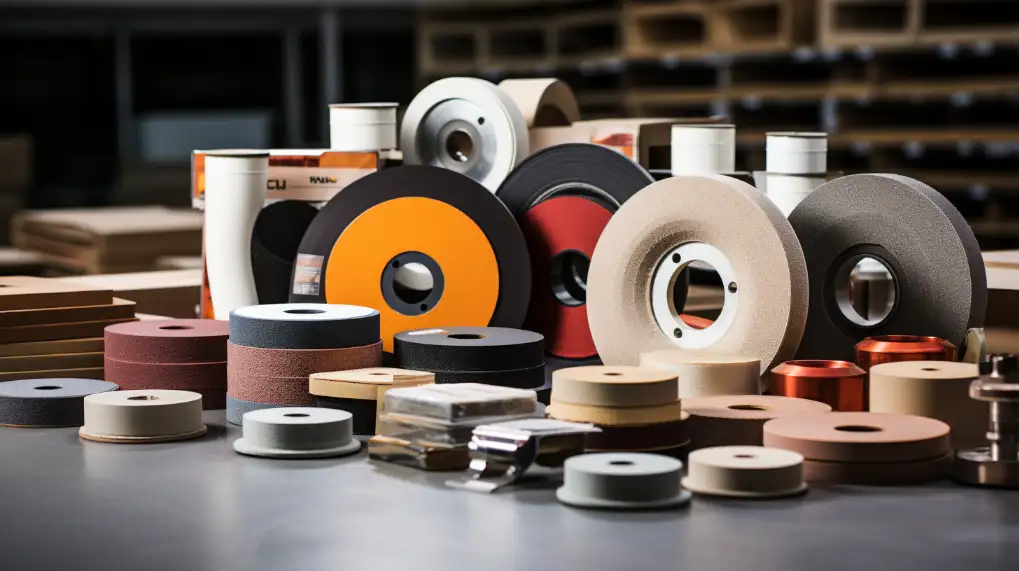
Benefits of Precision Grinding
Precision grinding offers several clear benefits. It’s often the best choice when other machining methods can’t meet the required accuracy or finish.
Extreme Accuracy
Precision grinding can hold tolerances tighter than 0.005 mm (0.0002 inch). It enables manufacturers to meet stringent size, shape, and positioning requirements. This level of control is crucial for components used in engines, surgical tools, and high-speed machinery.
Superior Surface Finishes
The process produces very smooth surfaces. It removes tiny amounts of material with each pass. This reduces tool marks and sharp edges. Many parts leave the grinder ready to use without the need for polishing.
Works With Hard Materials
Grinding is one of the few methods that can shape hardened steel, ceramics, and superalloys. Where milling or turning may cause tool wear or deformation, grinding stays precise. This makes it ideal for dies, molds, and wear-resistant components.
Cost-Effective
While it may seem more expensive up front, precision grinding can save money in the long run. It reduces the need for secondary finishing. It improves part fit, which reduces rejects. It also extends the life of tools and parts by producing clean, burr-free edges.
Industry Applications
Precision grinding plays a crucial role in industries that require accuracy, smooth surfaces, and precise tolerances. Here’s how it’s used in different fields.
Aerospace and Defense
Aerospace parts often operate under high stress and must meet exact specifications. Precision grinding ensures engine blades, gear shafts, and structural parts are accurate and reliable. It supports both safety and performance in flight-critical components.
Medical Device Manufacturing
Medical tools need smooth finishes and exact dimensions to function safely. Precision grinding is used for the manufacture of surgical instruments, implants, and diagnostic devices. It helps meet strict standards for cleanliness, sharpness, and biocompatibility.
Automotive Components
Engines, transmissions, and brake systems rely on ground parts. Precision grinding is used for components such as camshafts, pistons, bearing races, and valve components. These parts must fit and move precisely to minimize friction and wear.
Mold and Die Fabrication
Toolmakers use grinding to finish molds and die with complex shapes. The process gives tight tolerances and smooth surfaces. This helps produce better plastic or metal parts and extends the tooling’s lifespan.
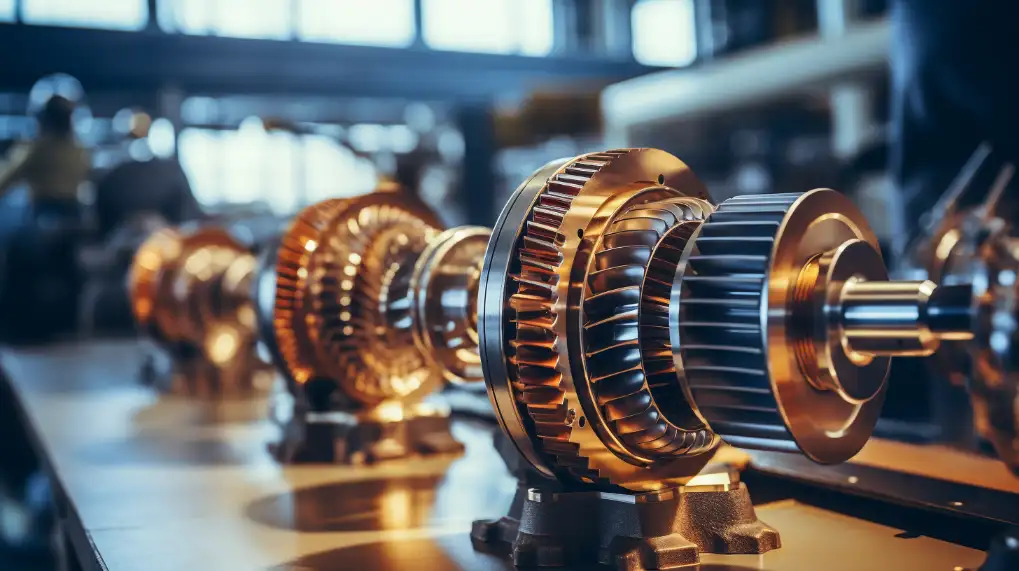
Best Practices for Effective Precision Grinding
To get the best results from precision grinding, several factors must work together. Follow these practices to get the most accurate and consistent results.
Proper Machine Setup and Calibration
Machine alignment must be checked before grinding begins. The table, spindle, and grinding wheel must be square and level. Even small misalignments can affect part flatness and accuracy.
Temperature changes can also impact machine performance. Allowing machines to warm up and using coolant helps maintain stability. Regular calibration ensures repeatable results across jobs.
Wheel Selection Tips
The grinding wheel must match the material and finish required for the job. Harder materials need softer wheels. Softer materials often use harder or finer-grit wheels.
Wheel grit affects surface finish. Coarse grit removes material faster but leaves a rougher surface. Fine grit produces a smoother finish but removes less material per pass.
The bond type also matters. Resin bonds are common for smooth finishes. Metal bonds are more suitable for tough materials and offer longer life.
Operator Skill and Training
Even with the best machines, operator skill makes a big difference. A trained technician knows how to set feeds, speeds, and dressing intervals. They can detect early signs of wheel wear or machine drift.
Good grinding also relies on careful observation. Monitoring sparks, sound, and part temperature helps avoid errors. Skilled operators spot problems early and make quick corrections to prevent defects.
Conclusion
Precision grinding is a reliable method for creating parts with tight tolerances and smooth finishes. It covers various techniques, including surface, cylindrical, centerless, and jig grinding. Each has a distinct role, depending on the shape and accuracy required. It works well with hard materials and helps reduce errors, part wear, and costly rework.
Need high-precision metal parts that meet strict requirements? Reach out to our team today to discuss your project. We’ll help you choose the right grinding method for your custom parts.
Hey, I'm Kevin Lee

For the past 10 years, I’ve been immersed in various forms of sheet metal fabrication, sharing cool insights here from my experiences across diverse workshops.
Get in touch

Kevin Lee
I have over ten years of professional experience in sheet metal fabrication, specializing in laser cutting, bending, welding, and surface treatment techniques. As the Technical Director at Shengen, I am committed to solving complex manufacturing challenges and driving innovation and quality in each project.

